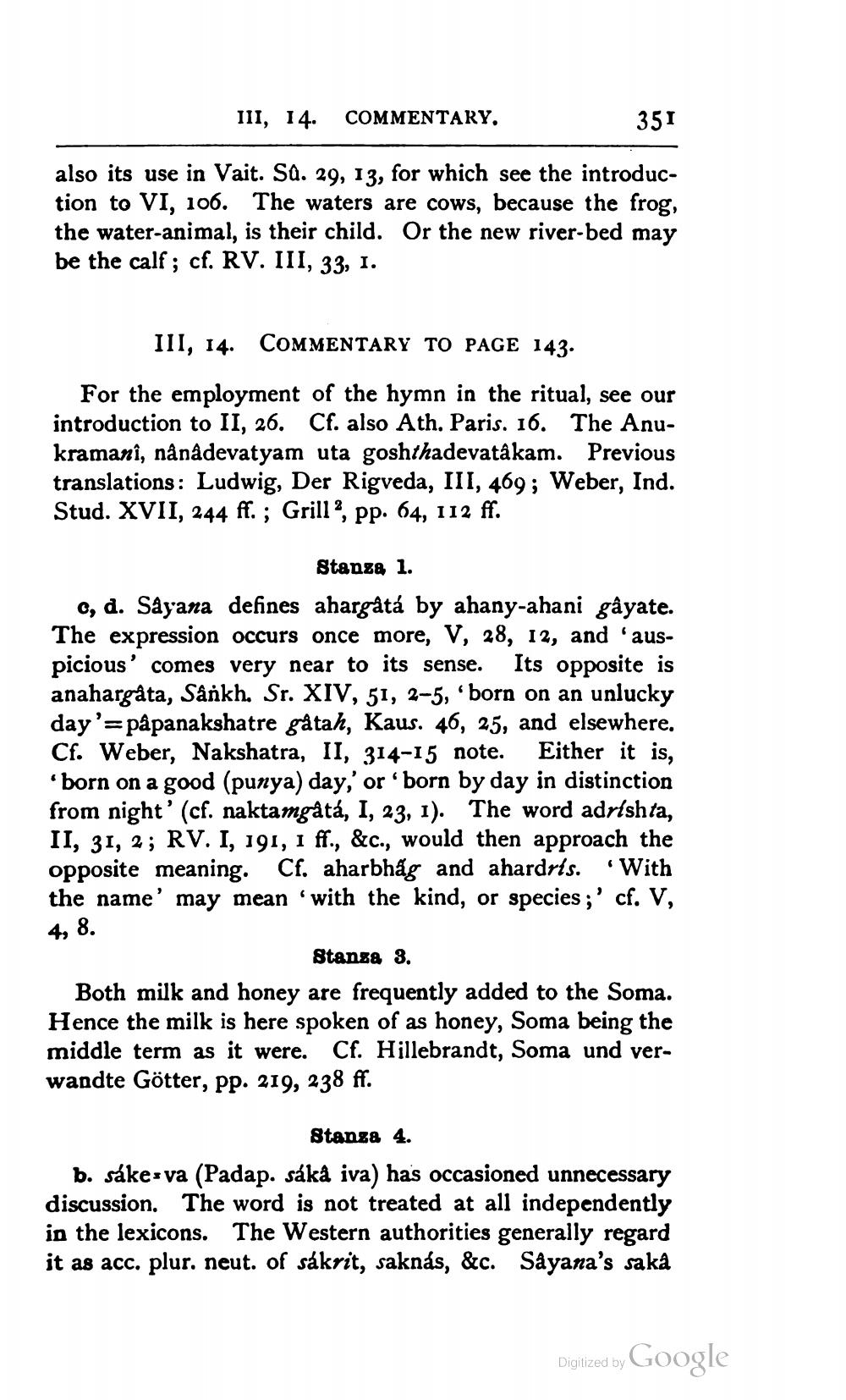________________
III, 14.
COMMENTARY,
351
also its use in Vait. Sû. 29, 13, for which see the introduction to VI, 106. The waters are cows, because the frog, the water-animal, is their child. Or the new river-bed may be the calf; cf. RV. III, 33, I.
III, 14.
COMMENTARY TO PAGE 143.
For the employment of the hymn in the ritual, see our introduction to II, 26. Cf. also Ath. Paris. 16. The Anukramanî, nânâdevatyam uta goshthadevatâkam. Previous translations: Ludwig, Der Rigveda, III, 469; Weber, Ind. Stud. XVII, 244 ff.; Grill2, pp. 64, 112 ff.
Stanza 1.
c, d. Sâyana defines ahargâtá by ahany-ahani gâyate. The expression occurs once more, V, 28, 12, and 'auspicious' comes very near to its sense. Its opposite is anahargâta, Sânkh. Sr. XIV, 51, 2-5, 'born on an unlucky day'= pâpanakshatre gâtah, Kaus. 46, 25, and elsewhere. Cf. Weber, Nakshatra, II, 314-15 note. Either it is, 'born on a good (punya) day,' or 'born by day in distinction from night' (cf. naktamgâtá, I, 23, 1). The word adrishta, II, 31, 2; RV. I, 191, 1 ff., &c., would then approach the opposite meaning. Cf. aharbhag and ahardrís. 'With the name' may mean 'with the kind, or species;' cf. V, 4, 8.
Stanza 3.
Both milk and honey are frequently added to the Soma. Hence the milk is here spoken of as honey, Soma being the middle term as it were. Cf. Hillebrandt, Soma und verwandte Götter, pp. 219, 238 ff.
Stanza 4.
b. sáke-va (Padap. sákâ iva) has occasioned unnecessary discussion. The word is not treated at all independently in the lexicons. The Western authorities generally regard it as acc. plur. neut. of sákrit, saknás, &c. Sâyana's sakâ
Digitized by Google




